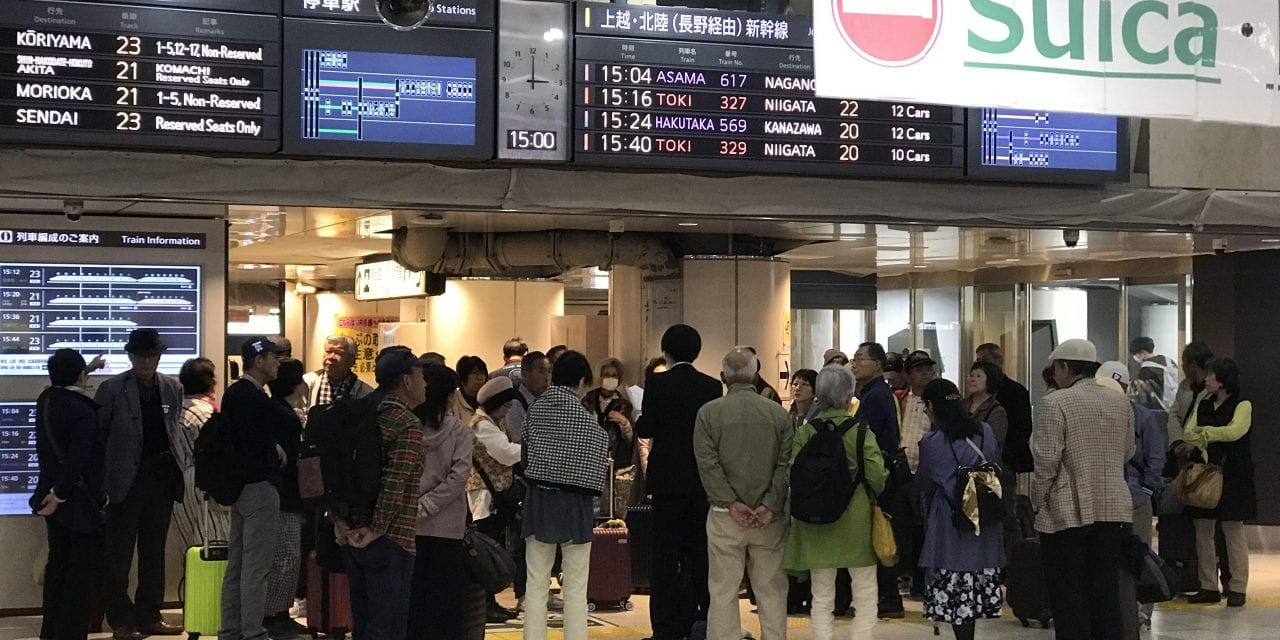It seems this word Mindfulness is a hot topic in our hectic globally connected electronic world. Now that I am in Japan the word has much more meaning.
It seems this word “mindfulness” is a hot topic in our hectic globally connected electronic world. Now that I am in Japan, the word has much more meaning. Buddhism thrives alongside the long-established Shinto traditions in Japan as a form of what us westerners would call “religion”; it seems to me to be a core foundation of the Japanese lifestyle.
Deliberate or Accidental?
I know I am not the first visitor to Japan to recognize this phenomenon of deliberate mindfulness, compared to our linear time and goal-focused society in the US. As Peter Drucker famously stated,
“They are expected to start out with the question, ‘What is good for the country?’ rather than the question ‘What is good for us, our institution, our members, and our constituents?’ And, In Japan, ‘Culture eats strategy for lunch.’”
Learning Journey
I am on a quest to understand how the Japanese people are caring for their seniors, beyond the headlines of robots and virtual assistance. The nagging question for me remains; how do the needs and demands for senior care fit into the good of the country and the collective?
According to Mr. Chouchan who achieved double-digit growth since he took charge as President & CEO of Godiva Japan in 2010. He is well versed in Japanese culture and began practicing Kyudo (traditional Japanese archery) 25 years ago.
“In Kyudo, there is a phrase seisha hicchu, which means that if you do things correctly, you will hit the target. Based on that proverb, I attempt to focus all my energy on maintaining a proper state of mind,” he explained. “I always think about what is right for customers (by applying the concept of seisha to business). Focusing on form without thinking of the target will allow you to hit it naturally . . . returning to the origin of Japanese value will provide clues to modern society and management.” https://journal.jp.fujitsu.com/en/2017/11/09/01/#section-02
It’s the Culture

At brunch, I witnessed an older gentleman, dare I say a Senior, with a cane struggling to balance his plate and stand. Immediately, a wait staff person came over to assist him and with the quiet patience I am witnessing from every Japanese person I meet, she helped him make his selections from the many buffet choices. She held his plate so he could place the desired items and the amount of food he wanted on it. Throughout the process, which took at least ten minutes, the staff person was professional, smiling, not rushing him to move more quickly.
This dignity and professionalism are what we aspire to train and coach our own senior living caregivers to provide. As a witness to this intimate exchange of caring service to support another person’s independence, I couldn’t help but think it was much more than training, it was culture.
Now, I am introducing yet another big idea, which we in senior housing keep using these days as a catch-all for the priceless intangible of bringing values and a mission to life. What if we are approaching the idea of “culture” as an acquisition of something inanimate versus a spirit of something that is lived and breathed versus acquired? What if the real essence of culture is in the very mindfulness I am witnessing in my visit to Japan?
I defer to the great culture experts like Denise Boudreau-Scott and Steve Moran to bring our senior living industry and profession the tactical practices to create great organizational and team cultures to life. I imagine they too are integrating how to establish “Mindfulness Moments” into the shift changes, morning “huddles” and many leadership meetings needed to communicate the 365 24/7 of our senior housing management and caregiving experience.
A New Way of Doing and Being
From what I am seeing from Japan, our American culture of caregiving might consider moving beyond the platitudes of mission to the spirit of mindfulness in teaching all of us in caregiving, the practice of being fully present, joyful, and focused on the person and the task or duty with a patient and loving heart.

As I step into the Meditation Center, I am reminded that all of these behaviors are learned and can be learned by everyone. The Zen Center is stripped of all distractions of images to stimulate the mind and all sound, except the tolling of the intermittent bell. The sound of the bell reminds us to come back to the center, come back to the breath; the very essence of life in this moment is breath.
Let this moment take us to the next moment, and then take us to the next moment with centered and deliberate intention to be fully present to the needs of others in the service and care of seniors. Mindfulness may not be a part of every Americans’ home life or our national culture, however, I am very hopeful we can start creating behavioral opportunities for us to “be” fully present as individuals and the collective community of caregivers to the benefit of our individual residents and our greater community.
To learn more about Japanese business culture from Peter Drucker’s perspective go to https://hbr.org/1981/01/behind-japans-success








